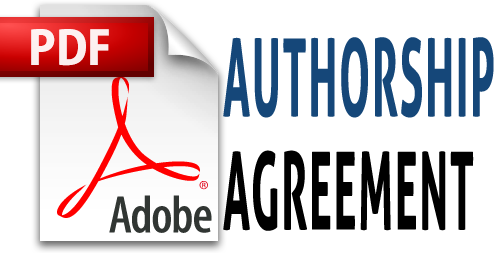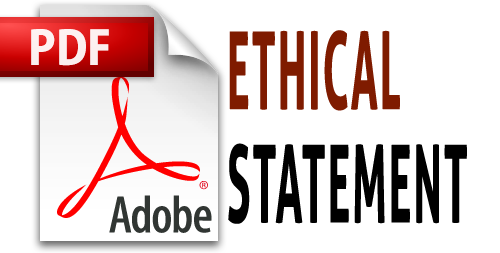TECHNOLOGICAL PEDAGOGICAL CONTENT KNOWLEDGE (TPACK) IN THE INSTRUCTION DESIGN OF THE PARTICIPANTS IN TEACHER PROFESSION EDUCATION: A NARRATIVE INQUIRY CASE STUDY
 Endang Mastuti Rahayu(1),
Endah Yulia Rahayu(2*),
Nico Irawan(3)
Endang Mastuti Rahayu(1),
Endah Yulia Rahayu(2*),
Nico Irawan(3)
(1) Universitas PGRI Adi Buana Surabaya
(2) Universitas PGRI Adi Buana Surabaya
(3) Universitas PGRI Adi Buana Surabaya
(*) Corresponding Author
 Abstract viewed : 2140
|
Abstract viewed : 2140
|  PDF downloaded : 214
PDF downloaded : 214
Abstract
This study aims to assess pre-service and in-service teacher competency mastery in the Teacher Professional Education Program (PPG). Ultimately, teachers must integrate their pedagogy and content knowledge with technology or Pedagogical Technology content knowledge (TPACK) as a learning technique that highlights certain technologies and applications. Narrative inquiry case studies were used in this study to examine how 12 PPG members applied TPACK personally and publically, as well as their implementation experiences and disputes. In addition, this study confirms prior findings that technology integration improves the work efficiency of in-service EFL instructors. Finally, this study found that pre-service FLE teachers defined their experiences and stories using TPACK-related adjectives such as instructional, consistent with aims, appropriate to PPG targets, thought-provoking, and innovative.
Abstrak
Penelitian ini bertujuan untuk menilai penguasaan kompetensi guru prajabatan dan dalamjabatan pada Program Pendidikan Profesi Guru (PPG). Pada akhirnya, guru harus mengintegrasikan pengetahuan pedagogi dan kontennya dengan teknologi atau Pedagogical Technology content knowledge (TPACK) sebagai teknik pembelajaran yang menonjolkan teknologi dan aplikasi tertentu. Studi kasus penyelidikan naratif digunakan dalam penelitian ini untuk mengkaji bagaimana 12 anggota PPG menerapkan TPACK secara pribadi dan publik, serta pengalaman dan perselisihan implementasi mereka. Selain itu, penelitian ini menegaskan temuan sebelumnya bahwa integrasi teknologi meningkatkan efisiensi kerja instruktur EFL dalam pelayanan. Akhirnya, penelitian ini menemukan bahwa guru FLE pra-jabatan mendefinisikan pengalaman dan cerita mereka menggunakan kata sifat terkait TPACK seperti instruksional, konsisten dengan tujuan, sesuai dengan target PPG, merangsang pemikiran, dan inovatif.
Keywords
References
Artin, K. (2021). English Teachers' Problems and Strategies in Conducting Online Learning Systems During COVID-19 Pandemic. IAIN Bengkulu. http://repository.iainbengkulu.ac.id/7017/
Bos, B. (2011). Professional Development for Elementary Teachers Using TPACK. Contemporary Issues in Technology and Teacher Education, 11 (2), 167–183.
Brotosedjati, S. (2012). Kinerja Guru Yang Telah Lulus sertifikasi Guru dalam Jabatan. Jurnal Manajemen Pendidikan (JMP), 1(2), 189-199. https://doi.org/10.26877/jmp.v1i2.297
Cladinin, D.J., & Huber, J. (2010). Narrative Inquiry. Journal de Physiologie, 61, 436-441.
Cox, S., & Graham, C.R. (2009). Diagramming TPACK in Practice: Using an Elaborated Model of the TPACK Framework to Analyze and Depict Teacher Knowledge. TechTrends, 53, 60–69.
Frankel, J. R., & Wallen, N.E. (2000). How to Design and Evaluate Research in Education. 4th ed. Boston, MA: McGraw-Hill Higher.
Gonzales, R.A., & Ilagan, R.B. (2020). Millennializing teachers towards 21st-century pedagogy. Journal of Critical Reviews, 7(11), 279-285. https://doi.org/10.31838/jcr.07.11.45
Goodson, I. (1995). The story so far: Personal knowledge and the political. In Life history and narrative, ed. J.A. Hatch and
R. Wisniewski, 86–97. London: Falmer Press.
Goodson, I., ed. (1992). Studying teachers' lives. New York: Teachers College Press.
Haley-Mize, S., & Bishop, J. (2015). Exploring TPACK Model Practices: Designing, Facilitating, and Evaluating Effectiveness of Technology Experiences Among Pre-service Teachers. In C. Angeli & N.Valanides (Ed.). Technological Pedagogical Content Knowledge: Exploring, Developing, and Assessing TPACK. Springer US. https://doi.org/10.1007/978-4899-8080-9
Harris, J.B., & Hofer, M.J. (2011). Technological Pedagogical Content Knowledge (TPACK) in action: A descriptive study of secondary teachers' curriculum-based, technology-related Instructional Planning. Journal of Research on Technology in Education, 43(3), 211-229. https://doi.org/10.1080/15391523.2011.10782570
Janssen, N., Knoef, M., & Lazonder, A.W. (2019). Technological and pedagogical support for pre-service teachers' lesson planning. Technology, Pedagogy, and Education, 28 (1), 115-128. https://doi.org/10.1080/1475939X.2019.1569554
Kholis, N., & Murwanti. (2019). Teacher Professionalism in Indonesia, Malaysia, and New Zealand. TARBIYA: Journal of Education in Muslim Society, 6(2), 179-196. https://doi.org/10.15408/tjems.v6i2.11487
Koh, J.H.L., Chai, C.S., Hong, H.Y., & Tsai, C.C. (2015). A Survey to examine teachers' perceptions of design dispositions, lesson design practices, and their relationships with technological pedagogical content knowledge (TPACK). Asia Pacific
Journal of Teacher Education, 43(5), 378-391. https://doi.org/10.1080/1359866X.2014.941280
Loeneto, B.A., Ernalinda, E., Eryansyah, E., Alwi, Z., & Oktarina, S. (2020). In-Service Teacher Training and Education in Indonesia. Creative Education, 11(03), 328-342. https://doi.org/10.4236/ce.2020.113026
Masrizal, Fata, I.A., Erdiana, N. (2020). Investigating In-Service Teachers' Perceptions on Online and Autonomous Learning. Humanities & Social Sciences Reviews, 8(3), 456-465.
Mishra, P. (2019). Considering Contextual Knowledge: the TPACK Diagram Gets an upgrade. Journal of Digital Learning in Teacher Education, 35(2), 76-78. https://doi.org/10.1080/21532974.2019.1588611
Mishra, P., & Koehler, M. J. (2006). Technological Pedagogical Content Knowledge: A Framework for Teacher Knowledge. Teachers College Record, 108 (6), 1017–1054.
Putri, N.W., & Fatimah, S. (2021). The Impact of PPG Program on the Performance of Pre-Service and In-Service English Teachers based on Teacher's Self-Assessment. Journal of English Language Teaching, 10(3), 315-326. https://doi.org/10.24036/jelt.v10i3.113640
Robin, B. R. (2008). Digital Storytelling: A Powerful Technology Tool for the 21st Century classroom. Theory into Practice, 47, 220–228.
Sabilah, F., Abidasari, E., & Husamah, H. (2021). Teacher Professional Education Coaching to produce high-quality lesson plan. Journal of Community Service and Empowerment, 2(1), 13-21. https://doi.org/10.22219/jcse.v2il.15905
Sancar-Tokmak, H., Sürmeli, H., & Ozgelen, S. (2014). Pre-service Science Teachers' Perceptions of their TPACK Development after Creating Digital Stories. International Journal of Environmental and Science Education, 9 (3), 247–264.
Shulman, L. S. (1986). Those Who Understand: Knowledge Growth in Teaching. Educational Researcher, 15, 4–14.
Simsek, O., & Sarsar, F. (2019). Investigation of the Self-efficacy of the Teachers in Technological Pedagogical Content Knowledge and Their use of Information and Communication Technologies. World Journal of Education, 9(1), 196. https://doi.org/10.5430/wje.v9n1p196
Soland, J., Hamilton, L.S., & Stecher, B.M. (2013). Measuring 21st Century competencies: Guidance for educators. In Asia Society Global Cities Education Network Report (November). http://asiasociety.org/files/gcen-measuring21cskills.pdf
Suryawati, E., Linggasari, M.N., Arnentis, A. (2017). Technological Pedagogical and Content Knowledge of Biology Prospective Teachers. Biosaintifika: Journal of Biology & Biology Education, 9(3), 498. https://doi.org/10.15294/biosaintifika.v9i3.11270
Suyanto, S., Nurcahyo, H., & Mercuriani, I. (2019). Comparative Study on the Development of Technological, Pedagogical and Content Knowledge (TPACK) of Biology Teacher Through Academic and Professional program. Educational Research Association the International Journal of Research in Teacher Education, (1), 41-53. http://www.eab.org.trhttp/ijrte.eab.org.tr
Tseng, J.J. (2017). Exploring TPACK-SLA interface: insights from the computer-enhanced classroom. Computer Assisted Language Learning, 31(4), 390-412. https://doi.org/10.1080/09588221.2017.1412324
Undang-Undang Guru dan Dosen, 53 KEMENHUM 25 (2005).
Yuksel-Arslan, P. (2013). Eğitim amaçli dijital öykünün hazirlanmasi ve kullanilmasi: TPAB temelli örnek bir fen bilgisi eğitimi uygulamasi [Creation and Use of Digital Stories for Educational Purposes: An Example of TPACK Based Science Education Course].” In Fen Ve Matematik eğitiminde Teknolojik, Pedagojik Alan Bilgisi (TPAB) temelli öğretim tasarimlari [Technological Pedagogical Content Knowledge (TPACK) Based Course Design in Science and Math Education], edited by T. Yanpar-Yelken, H. Sancar-Tokmak, S. Özgelen, and L. İncikabı, 105–128. Ankara: Anı Publication.
Refbacks
- There are currently no refbacks.
Copyright (c) 2023 Endang Mastuti Rahayu, Endah Yulia Rahayu, Nico Irawan

This work is licensed under a Creative Commons Attribution-NonCommercial 4.0 International License.
Kwangsan Indexed By
Kwangsan: Jurnal Teknologi Pendidikan diterbitkan oleh Balai Besar Guru Penggerak (BBGP) Prov. Jawa Timur.
Kementerian Pendidikan dan Kebudayaan
Alamat Redaksi:
Jl. Mangkurejo, Ds. Kwangsan, Sedati - Sidoarjo.
Telp 0318911373 Fax. 0318911392
Email: jurnal.kwangsan@kemdikbud.go.id & jurnalkwangsan@dikbud.belajar.id






























